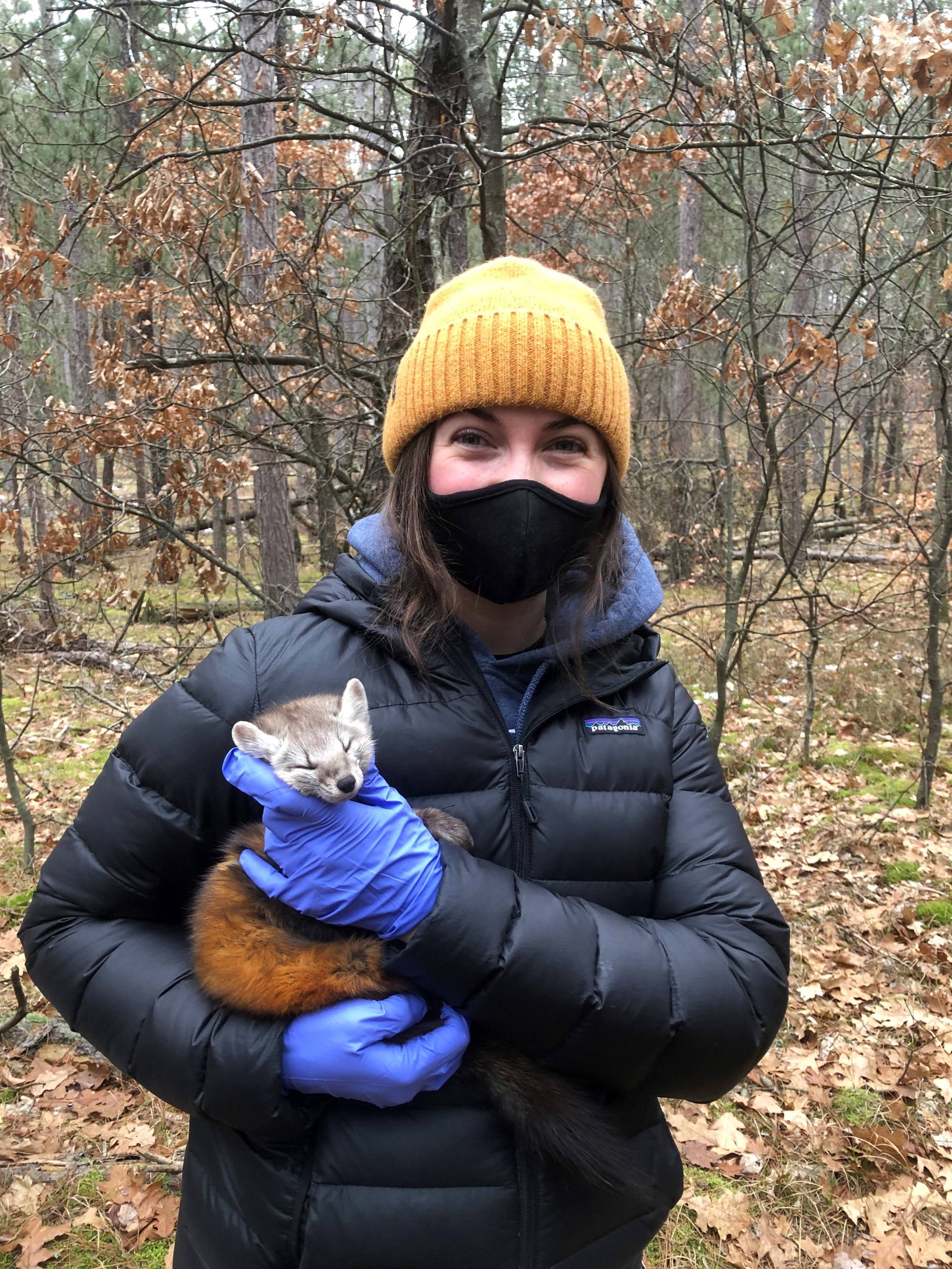Bachelor of Science in Wildlife Biology
The Wildlife Biology Program at GVSU
The Wildlife Biology major is designed to qualify students for federal wildlife biologist positions and students may wish to pursue certification as Associate Wildlife Biologists by The Wildlife Society. To do so, students will want to work closely with their academic advisors. The curriculum emphasizes field studies and skills acquisition necessary to work in the wildlife professions.
Students with Wildlife Biology major will be competitive for employment with State and Federal Agencies, environmental consulting firms, Tribal and non-governmental organizations, non-profit conservation groups, and for graduate school. Early consultation with an academic advisor is strongly recommended.
How to become a wildlife biologist
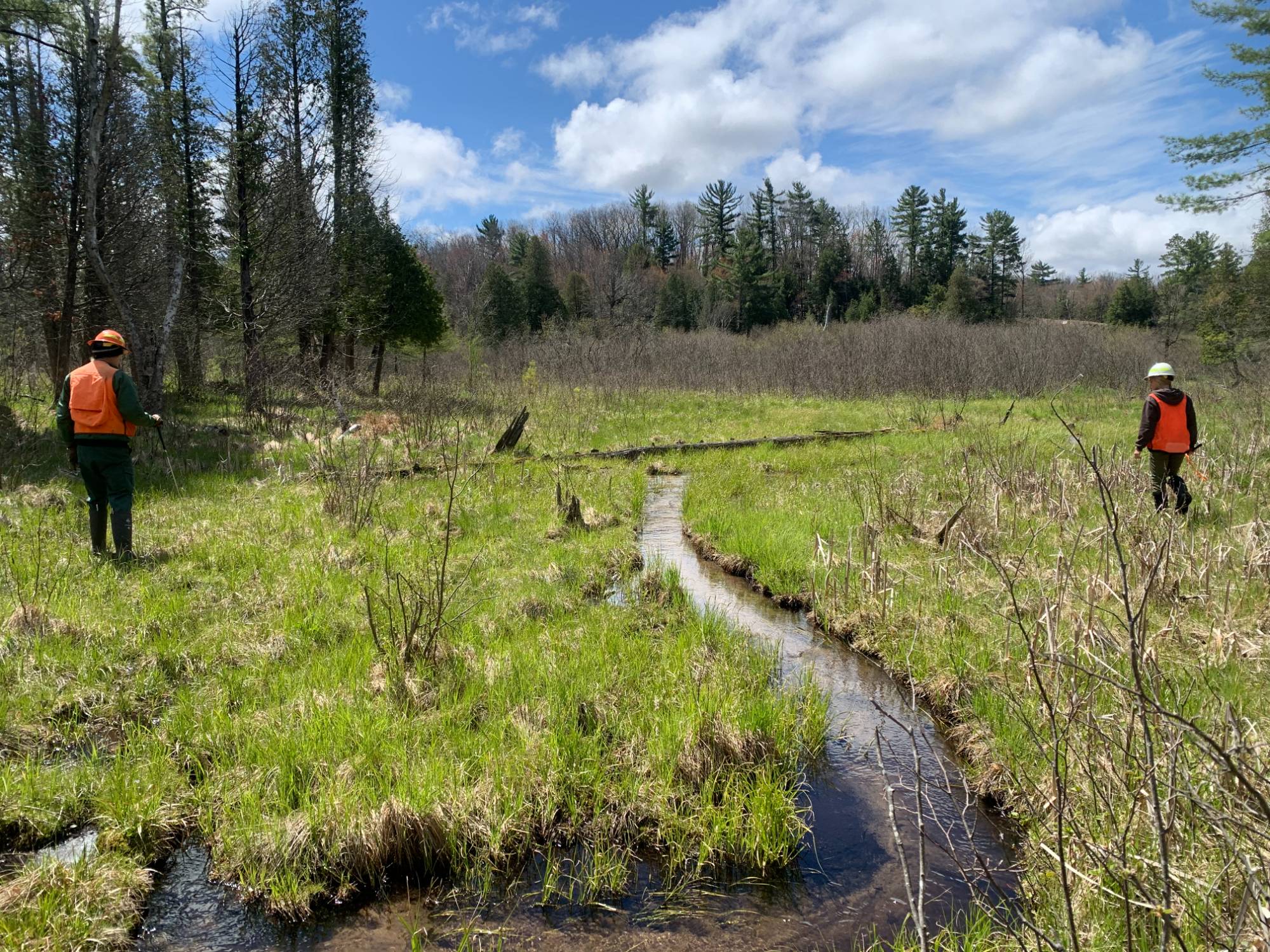
Enhancing Your Competitiveness and Employability
- Communication skills
- Interpersonal skills
- Critical thinking
- Computer skills (Microsoft package, especially Word and Excel)
- Data analysis
- Use of compass and map, GPS unit, and GIS
- Driving 4-wheel drive vehicles, basic vehicle maintenance, and backing a trailer
- Driving ATVs (all-terrain vehicles) and snowmobiles
- Use of hand and power tools
- Use of chainsaws
- Wildlife identification and natural history
- Plant identification skills
- Pesticide Applicator Certification
- Ability to drive a tractor
Soft skills apply to all students, but it is generally not necessary to possess all of the listed hard skills, select those that make the most sense for the types of positions you are pursuing.
For some of these hard skills, you will likely be able to use your network of family and friends (e.g., vehicle maintenance). For others, opportunities may be available through student clubs or within your local community. If you are uncertain how to obtain experience in a particular skill, please consult with your academic advisor.
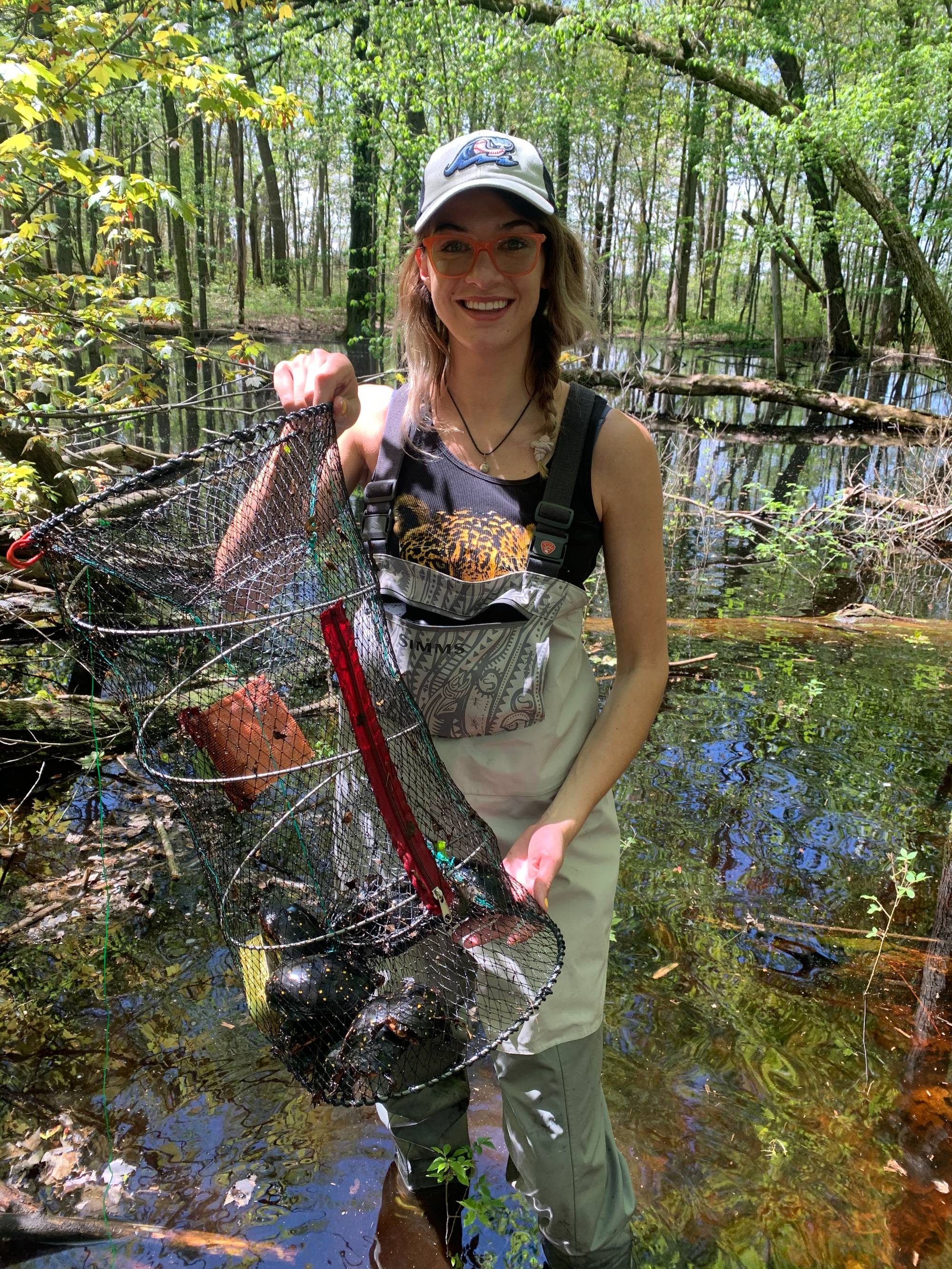
Job and internship opportunities
Examples of recent internship experiences of our majors
Texas A&M Department of Wildlife and Fisheries Sciences Job Board
U.S. Office of Personnel Management Pathways Program
Qualification for Federal Wildlife Biology Series, 0486
Student Conservation Association
U.S. Department of the Interior
Basic qualification requirements for USF&W careers
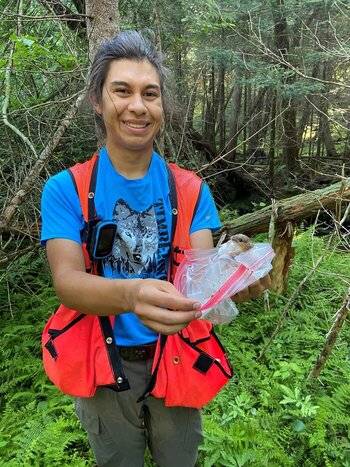
Environmental Consulting - Indeed list of Michigan job postings
Non-Governmental Organizations – Good examples would include Conservation International, Defenders of Wildlife, Natural Resources Defense Council, Sierra Club, The Nature Conservancy, and World Wildlife Fund. These websites contain lists and descriptions of many additional NGOs: Top U.S. Conservation Organizations, Most influential sustainability NGOs, and Green Dreamer.
Local Nonprofit Organizations - Good examples would include Land Conservancy of West Michigan, Pierce Cedar Creek Institute, Blandford Nature Center, Edward Lowe Foundation, Kalamazoo Nature Center, and Kellogg Biological Station. Here is a link to a more comprehensive list of Michigan environmental organizations.
Volunteer opportunities – Any of the above organizations have volunteer opportunities, additionally you could try Ottawa County Parks and Recreation or any county of interest.
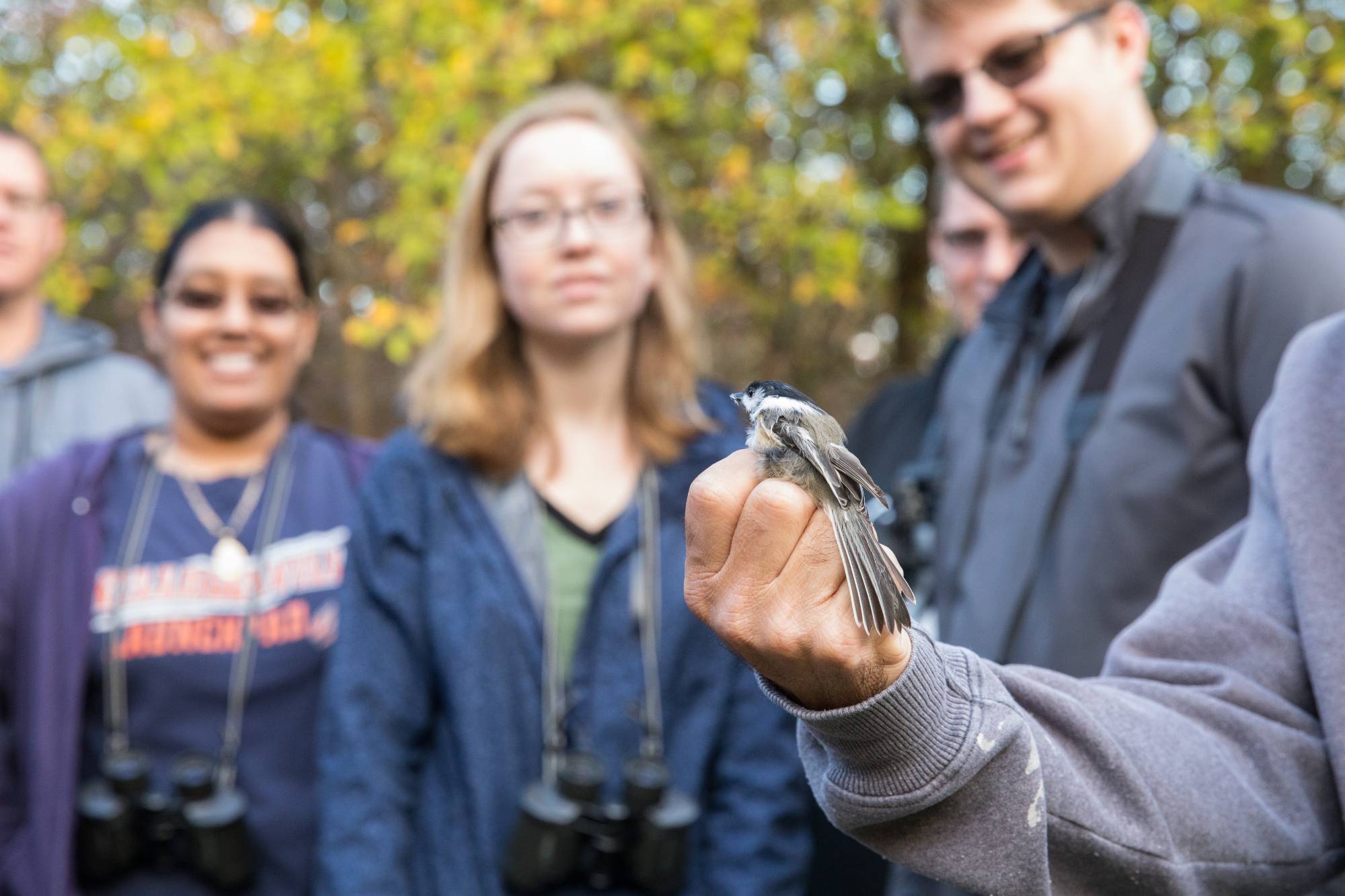
Further Information
